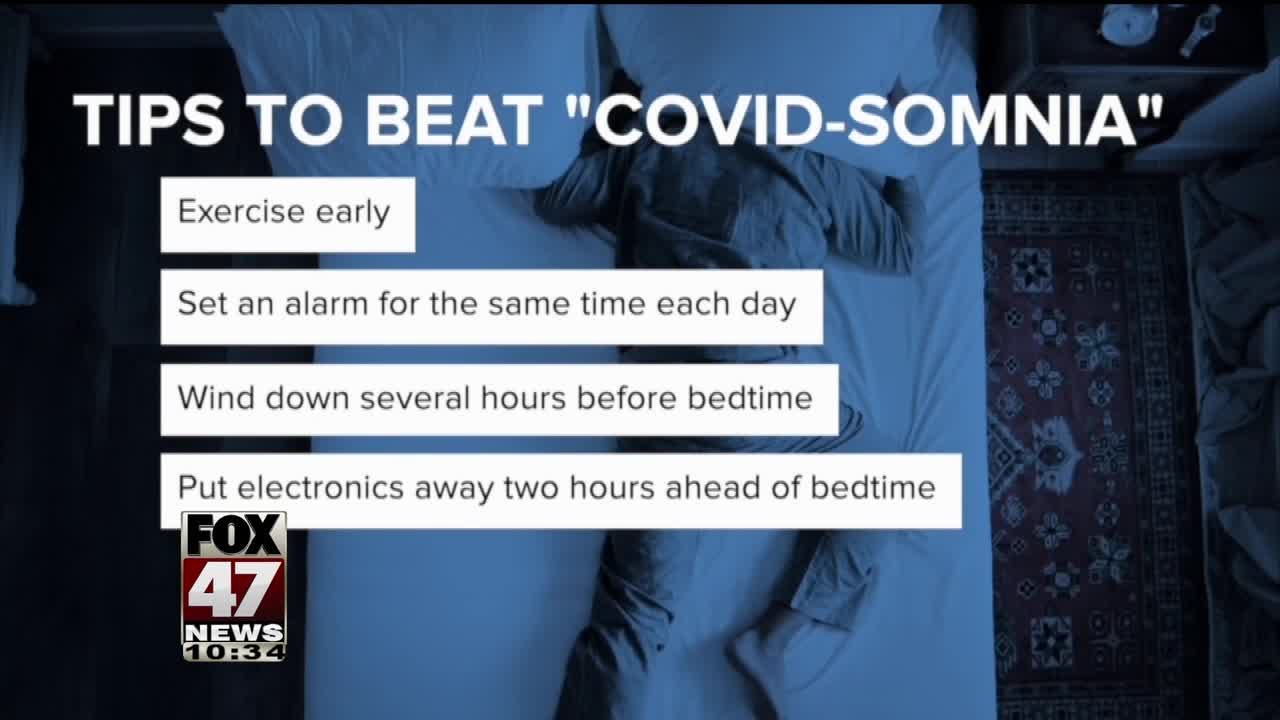LANSING, Mich. — We've told you about the effects the pandemic has been having on how Americans sleep, but some are experiencing another side-effect that's leaving them exhausted. Ash-Har Quraishi spoke to doctors about what you can do to fight "pandemic-induced insomnia."
No morning commute. Nowhere to drop the kids off, the stress of the pandemic coupled with a lack of scheduling anchors is leading to sleepless nights.
Dr. Cathy Goldstein is an Associate Professor of Neurology specializing in sleep disruption at the University of Michigan says: "They could have difficulty falling asleep or what I'm seeing most commonly is difficulty staying asleep."
Unusual schedules shift our internal body clocks - known as carcadian rythms - in unhealthy ways.
"Now we don't have to get up and go anywhere. so, i see people push their clocks later and they're falling asleep later at night and then they're sleeping in, and so, the subsequent day they can't fall asleep."
"Pandemic induced insomnia" or "covid-somnia" she says is also being compounded by over consumption of media on cell phones and tablets.
"They also allow us to bring little miniature suns into the sleep period."
A recent survey found that 98% of Americans developed sleep problems post lockdown and 68% feel stress or find it hard to sleep even after the lockdown was lifted.
Between mid February and mid-March as the outbreak began ramping up prescriptions for sleep medications jumped nearly 15% compared to the same time last year.source: express scripts
Dr. Jessica Nouhavandi - Lead Pharmacist/CEO Honeybee Health shared that "we have seen an increase in prescriptions for insomnia medications. but we do recommend patients try lifestyle changes or o.t.c. which are over-the-counter supplements."
Things you can do to combat "COVID-somnia" exercise early in the dayset an alarm to wake up at the same time each day seven days a week & disable the snooze button.
Start winding down several hours before your fixed bedtime and put phones and tablets away at least two hours before you hit the sack.
One other tip, Dr. Goldstein recommends is using amber blue blocking lenses to help with screens and energy efficient bulbs that emit blue spectrum light.
"So by putting on those glasses four hours before bedtime you're getting rid of that circadian disrupting light. so, that's a huge help.
"Experts say sleep is even more essential while trying to confront the COVID-19 pandemic.
Dr. Jessica Nouhavandi warns that"the lack of sleep, you know it directly affects not only your physical health but your mental health.
Want to see more local news ? Visit the FOX47News Website.
Stay in touch with us anytime, anywhere.
Download our free app for Apple and Android
and
Sign up for newsletters emailed to your inbox.
Select from these options: Breaking News, Severe Weather, School Closings, Daily Headlines and Daily Forecasts.




